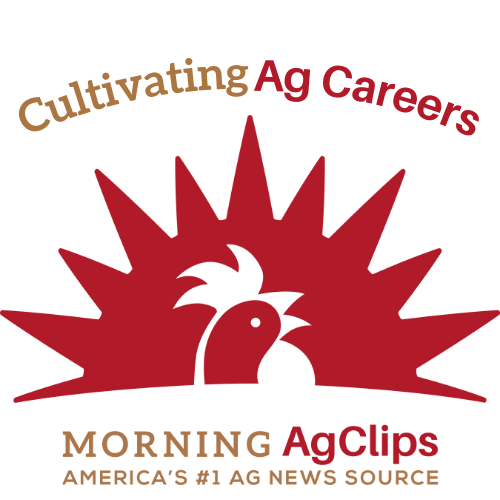GREENWICH, N.Y. — “My path was probably a little bit different from what you traditionally see in agriculture,” says Susana Milla-Lewis. Susana is originally from Lima, Peru. She had an interest in plants growing up, but living in a big city did not afford her much experience with farming. “While I grew up listening to my dad’s stories about his childhood on a farm in Honduras, I come from a huge city. By the time I graduated high school I knew I was interested in plants, but didn’t know exactly what I wanted to focus on,” she said.
Susana attended Universidad Peruana Cayetano Heredia in Lima and studied Biological Sciences. She felt this course of study would give her a broad view into the world of plants. However, while at school she somewhat by chance became interested in plant breeding. “[A]t the start of my junior year, I read a magazine article about how plant breeders combine genetics, selection and biotechnology to develop crops with higher yield, improved quality, and more resilience,” she explained. “I was hooked! From then on, I set up my path to go to graduate school in plant breeding in the US.”
After discovering this interest Susana was able to secure an internship at the International Potato Center in Lima. Her time there was a great experience and it gave her exposure to the interdisciplinary nature of plant breeding for the first time. She said, “Our department included scientists working from germplasm collection all the way to plant transformation. As an aspiring scientist, it was really neat for me to see the whole spectrum of what a plant breeder can do.” She then went on to North Carolina State University earning a master’s degree in tobacco breeding and a PhD in peanut breeding.
Today, Susana is still at NCSU and serves as a professor in turfgrass breeding and genetics. In her work Susana develops new varieties of grasses that have improved characteristics. This process begins by evaluating diverse turfgrass materials under stressful conditions to determine the best ones to use as parents. Once chosen plants are crossed and their progenies are investigated to hopefully identify individuals that combine the best characteristics of both parents. Susana explained, “The selection process is like a funnel, we start with thousands of individuals and through years of selection, narrow it down to the one line that is the very best across all traits evaluated. For turfgrasses, we want something that has good turf quality (color, texture, density, uniformity), is aggressive so that it can recover from injury, and that can survive under both hot and cold temperatures. Additionally, we want turfgrasses that utilize less inputs so that they are easier to manage both to the producer and the end user.”
One of the things Susana loves about her job is its interdisciplinary nature. “I work with five different species of grasses and we have projects that incorporate different aspects of the plant sciences: agronomy, genomics, pathology, entomology, molecular biology, etc.,” she shared. “Breeders never get bored!”
Working for a land grant university, Susana’s job is also interdisciplinary in that it covers the missions of the land grant schools: research, extension, and academics. “We keep an ear on our industry so that we learn what the major problems they face are,” she said. “Then, we do research to better understand those problems so that we can deliver solutions. The research that we do doesn’t just stay in lab or in a publication. Interacting with our clientele and disseminating the results of that work is a huge part of what we do.” She also gets to train the next generation of professionals in her areas of expertise by teaching in the classroom and recruiting undergraduate students for internships and mentoring graduate students.
For any students interested in a career in plant breeding or other areas of agriculture Susana gave this piece of advice: internships, internships, internships! “Seek out research/work experiences in differing topics within your area of interest. That should really help you pinpoint what you want to focus on. Additionally, that will give you the added bonus of looking at whatever problem you end up tackling in your future career from very different perspectives,” she said. She also advises students to reach out to industry professionals, professors, extension agents, etc. in an area of interest saying, “People tend to love to share their expertise and one of those conversations might end up helping you chose your career path and/or open career opportunities for you!”
Another thing Susana stressed was to not let a lack of experience or background in agriculture stop you from pursuing a career in the ag industry. This is something she felt early in her schooling and career as someone who was raised in an urban environment her whole life. “When I was in graduate school, I was intimidated by the fact that most of my fellow students were ‘born and bred in ag’ and I was the odd ball,” she shared. “If you had told me back then where my path would take me, I would not have believed you! So, my message to any students out there who might be like me, it doesn’t matter if your background is a bit different, what matters is how hard you work on the current path you’re on.”
For anyone interested in plant breeding or other aspects of Susana’s career she is happy to answer questions about it and can be reached at [email protected].
Cultivating Ag Careers introduces agriculture students and FFAers to the wide variety of careers that exist in agriculture. Each week a new individual will be introduced, who will share their journey: their educational experiences, their work, and what role their job plays in the wide world of agriculture.
Tune in each Wednesday to learn more about the different jobs and personalities that make up the ag industry!








